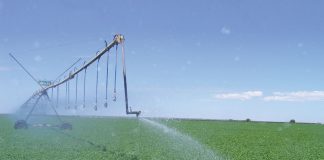
Photo: FW Archive
Pineapple farmers were happy to benefit from the surprise spike in demand for this tropical fruit as South Africans, left high and dry by the ban on alcoholic drink sales imposed during the coronavirus disease (COVID-19) lockdown, started experimenting with different home-brewed fermented drinks, such as pineapple and ginger beer.
However, the industry was concerned that the pandemic might still, in the months to come, have a negative impact on demand, specifically in terms of exports.
Joshua van Straaten, chairperson of the Hluhluwe Pineapple Marketing Association, said pineapple growers in northern KwaZulu-Natal who produced the Queen Victoria variety, which is mainly marketed as a fresh product, saw a rapid increase in demand on local fresh produce markets recently because consumers were brewing home-made pineapple beer.
“From March to April the price increased by 200% to reach a highest price at the Joburg Market in early April of R250 for an 8,5kg box of 10 pineapples. This is a massive increase compared with the average price over the past two years of R50 to R60,” he said.
According to Van Straaten, this sudden increase in price came at a time when farmers really needed it. “We’ve had a fairly difficult season. It was very dry and hot in the summer, with [a large volume of] fruit damaged by sunburn, and we had to destroy about 50% of the produce. Thus, smaller volumes went to the markets,” he said.
Anthony Albers, chief executive of Summerpride, said the global pandemic also appeared to have inspired people around the world to become more health-conscious, which has resulted in increased demand for 100% pure fruit juice.
In this regard, pineapple juice has also seen a rise in demand on international markets, including the EU, South America and the US, which has been a target market for exports from South Africa during the past few years.
East London-based Summerpride is a pineapple juice concentrate producer and supplier to the international beverage industry, and produces 14 000t of concentrate per annum from pineapples supplied by growers from as far afield as Peddie and Alexandria.
Asked about possible effects of the pandemic on the industry, Albers said a major concern was that if the pandemic continued globally, it could result in reduced export demand, as well as interrupted or decreased availability of shipping.
“We now process close to 100 000t of pineapples per year, which has grown from 65 000t in the past five to six years. Our growers have been expanding production, which is good for them and for us.
“Our production season starts at the end of February and extends to December, and we ship products all-year round. Right now, prices are good for us and our growers because of the exchange rate, but we hope that the pandemic doesn’t ‘crash’ our markets,” he said.











